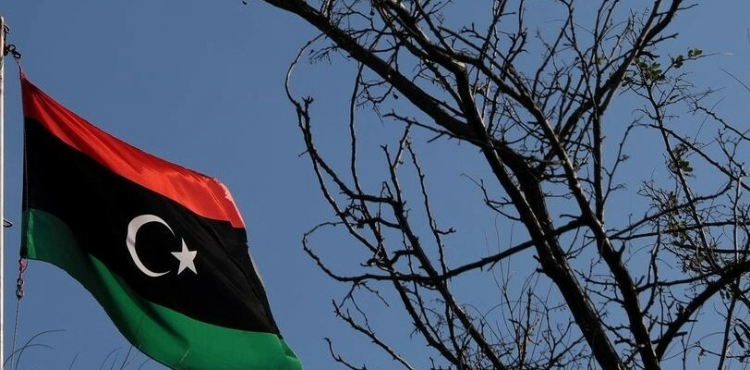The Anti-Illegal Migration Agency in Libya organized Thursday, land convoys to the eastern and southern borders of the country, to return more than 200 immigrants to their countries of origin, in an unusual coordination between the competing authorities in eastern and western Libya.
Badr al-Din bin Hamed, head of the office in charge of deportations, told AFP that the agency affiliated with the Ministry of Interior in the Tripoli government "organized today land convoys (...) to return 105 Egyptians, 101 Chadians and 20 Sudanese to the border.”
The number of people "subject to inadmissibility" is increasing, and "prison centers are overcrowded, which creates a lot of difficulties," Brigadier General Ahmed Abu Karaa, head of public relations in the judicial police at the Ministry of Justice,
In the presence of representatives of their embassies, the deportees, all dressed in black and white or black and gray tracksuits according to their nationality, were rounded up, then the police distributed bottles of water, some food and milk to them and escorted them to buses that took them towards the border.
Upon their arrival in Ajdabiya (east), the Egyptians will be taken back to the Salloum border crossing while the Chadians and Sudanese will take the road to Kufra (south) and then awainat on the border with Sudan.
The United Nations agencies were interested in returning refugees and migrants to their countries, but since an agreement was recently signed between the leaderships of western, southern and eastern Libya, the apparatus responsible for these referrals of the Ministry of Interior has become working in a unified manner.
More than 20,000 migrants were returned to Libya from the beginning of this year until last month, while the fate of 714 remained missing, and more than 400 migrants drowned, according to the International Organization for Migration.
Most of the migrants across Libya´s vast desert border are from Sudan, Chad, Niger and Egypt.
The United Nations says that the detention of immigrants is carried out in an "arbitrary" manner, and they are often subject to "killings, enforced disappearances and torture" or "slavery, sexual violence, rape and other inhuman acts."
The Libyan authorities defend themselves, stressing that they do not resort to violence, and that all migrants receive the necessary services and care for them in government detention centres.
Since the fall of Muammar Gaddafi´s regime in 2011, Libya has suffered divisions and political conflict, and two governments are competing for power: one based in Tripoli (west) headed by Abdul Hamid al-Dabaiba since the beginning of 2021, and another headed by Fathi Bashagha, appointed by Parliament last March and supported by Field Marshal Khalifa Haftar. .
Libyan authorities deport more than 200 migrants to their countries of origin












